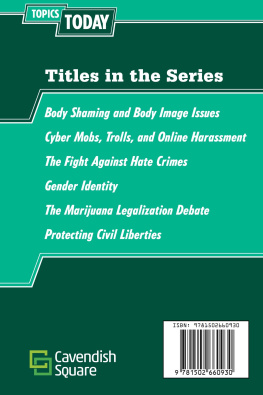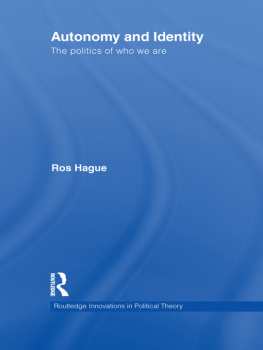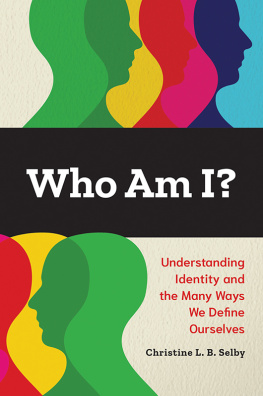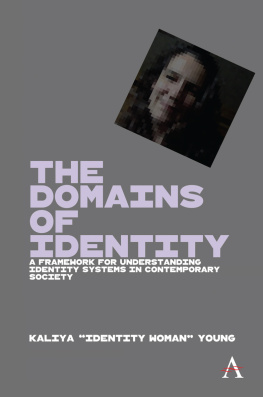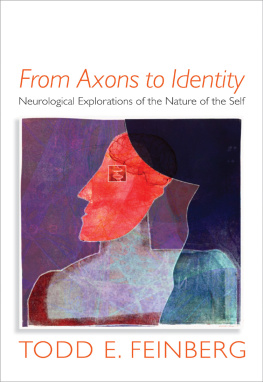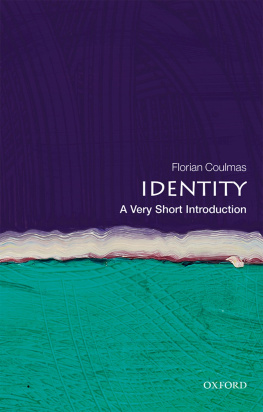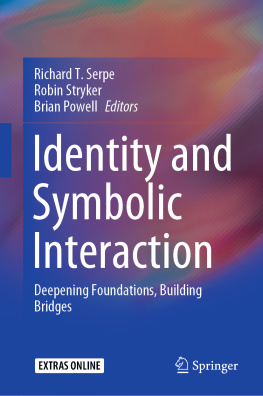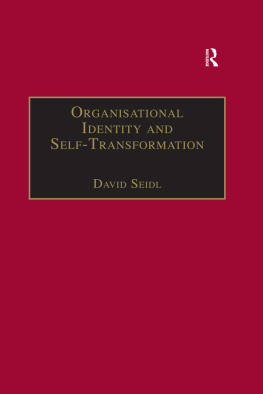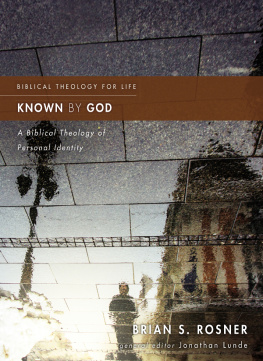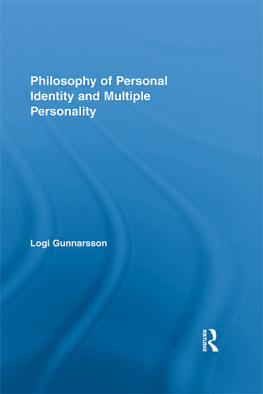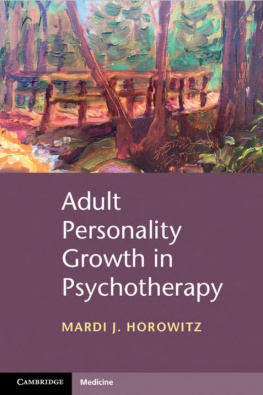Identity and the New Psychoanalytic Explorations of Self-organization
Advances in science and the humanities have demonstrated the complexity of psychological, social, and neurological factors influencing identity. A contemporary discourse is needed to anchor the concepts required in speaking about identity in present-day understanding. In Identity and the New Psychoanalytic Explorations of Self-organization, Mardi Horowitz offers new ways of speaking about parts of self, explaining what causes a range of experiences from solidity in grounding the self to disturbances in a sense of identity.
The book covers many aspects of both the formation and the deconstruction of identity. Horowitz examines themes including:
the sense of identity
social learning
biological learning
identity and self-esteem
levels of personality functioning and growth.
The book clarifies basic questions, defines useful terms, examines typical identity disturbances, and presents a biopsychosocial theory that explains how schemas operate in conscious and unconscious mental processing. The answers to the basic questions lead to improvements in psychotherapy practices as well as teaching and research methods.
Identity and the New Psychoanalytic Explorations of Self-organization will prove fascinating reading for those working in the fields of psychoanalysis, psychology, psychiatry, neuroscience, and the social disciplines.
Mardi Horowitz is Distinguished Professor of Psychiatry at the University of California, San Francisco, USA. He is former president of the San Francisco Center for Psychoanalysis and is the author of numerous articles and books.
First published 2014
by Routledge
27 Church Road, Hove, East Sussex BN3 2FA
and by Routledge
711 Third Avenue, New York, NY 10017
Routledge is an imprint of the Taylor & Francis Group, an informa business
2014 Mardi Horowitz
The right of Mardi Horowitz to be identified as author of this work has been asserted by him in accordance with sections 77 and 78 of the Copyright, Designs and Patents Act 1988.
All rights reserved. No part of this book may be reprinted or reproduced or utilised in any form or by any electronic, mechanical, or other means, now known or hereafter invented, including photocopying and recording, or in any information storage or retrieval system, without permission in writing from the publishers.
Trademark notice: Product or corporate names may be trademarks or registered trademarks, and are used only for identification and explanation without intent to infringe.
British Library Cataloguing in Publication Data
A catalogue record for this book is available from the British Library
Library of Congress Cataloging in Publication Data
Horowitz, Mardi Jon, 1934
Identity and the new psychoanalytic: explorations of self-organization / Mardi Horowitz.First Edition.
pages cm
Includes bibliographical references and index.
1. Identity (Psychology) 2. Psychoanalysis. I. Title.
BF697.H575 2014
155.2dc23
2013049587
ISBN: 978-0-415-73619-0 (hbk)
ISBN: 978-0-415-73620-6 (pbk)
ISBN: 978-1-315-77974-4 (ebk)
Typeset in Times
by Book Now Ltd, London
Contents
We are going beyond Descartes famous phrase: I think, therefore I am (cogito, ergo sum). The I in that phrase was considerably subdivided into complex concepts in the new knowledge attained from psychoanalytic, psychological, social, and neuroscience studies of the last century. This monograph is part of a Psychological Issues series that, in its early monographs, emphasized persisting mysteries of self-organization, most notably by the focus of Erik Erikson on identity formation as a series of developmental milestones, ones that could have normal or abnormal maturational possibilities. I intended this monograph to continue that kind of work, examining contemporary psychological, social, and neuroscience points of view, and, as he and Piaget did, considering unconscious as well as conscious mental processes.
Through decades as a psychoanalyst, psychotherapist, researcher, and professor of psychiatry, I have analyzed personality growth as it intertwines with posttraumatic stress disorder and with the often harsh process of mourning the loss of significant loved ones (Horowitz, 2011, 2014). These studies focused my attention on dissociation, decomposition in self-organization and, for some subjects, formation of an enhanced identity. A multiplicity of possible self-states made singular definitions of identity misleading at best.
Selves: the multiplicity problem
Multiple self-states can be observed in most people when they report their innermost experiences. As we examine both the intrapsychic and the interpersonal world in which minds form and endure, the issue of multiplicity breaks down into five related potential discords about what identity means:
People experience frequent discords between their internal sense of who they are and the reflections of themselves provided by their surrounding social connections.
People have expressive patterns that lead observers to find that they seem to have divisions between conscious and unconscious meanings as organized into their attitudes about self and relationships. For example, a man may believe himself to be caring, loving, and trustworthy, but his unconsciously driven actions betray to observers a side of his identity he does not want to seea readiness to betray others or get redress on long past grievances.
People often find within their own minds identity manifestations that are multifaceted, discontinuous, and not what they desire. Most people desire a sense of true self that will maintain continuity over time. However, multiple self-states may alternate, leaving a sense of uncertainty about what to expect next.
People may experience a discord between their need to preserve a lifelong sense of identity continuity and the need to realistically understand major changes in their bodily self, such as those of aging and disability, and loss of attachments, as in the death of a lifelong marital partner. The realities of aging may create discontinuities in both internal self-experience and social self-presentation. The aging person in question may behave strangely, perhaps dressing too young. A person long grounded in solid self-coherence may seem to fragment as an early sign of a dementing process, or as a regressive response to loss of a close community or job.
People often define themselves by referring to their continuity of values, yet they seem to have value conflicts as, over time, they struggle with multiple values from multiple social inputs. Mobility and rapid societal changes especially exacerbate the multiplicity issue. The most frequent discords, ones in need of some type of harmonization in order to achieve higher levels of personality functioning, are between personal goals for satisfaction and the social surrounding world that has rules for ethical living. These conflicts lead to serious lapses in respect and self-esteem if responsible compromises are not achieved.
This book asks questions and offers answers in its series of chapters. successively add social and neuroscience perspectives on what influences the intrapsychic formation of self and other attitudes, beliefs, roles, and values, as well as practices of expression of ideas and emotions.
The final third of the book applies an integrative self-organizational theory to the implications for clinically relevant action. explores growth of identity even after dire events, such as the loss of a loved one. It serves as a review of the possibilities for self re-definition.



